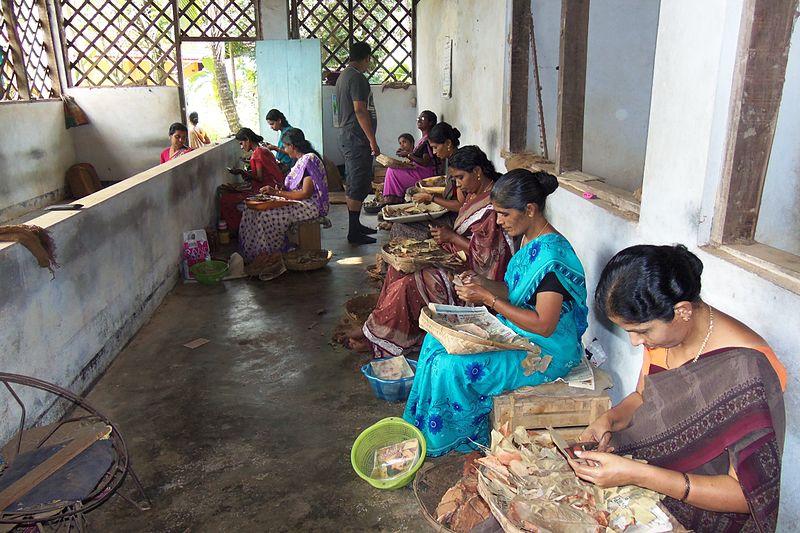Oxfam said it believes that austerity policies are contributing to more women and girls joining the 1.7 billion who are already now living below the poverty line of USD 5.50 a day
Fewer women were employed in 2021 than in 2020 due to the Covid pandemic and governments worldwide are putting women in danger of unprecedented poverty and overwork to tame inflation and help their economies recover, a new report has claimed.
The new Oxfam report — ‘The Assault of Austerity’ — stated that the road to post-pandemic recovery is being built upon the lives, sweated labour and security of women and girls, it said.
The report said many governments planned cuts to public services like water which meant that women and girls around the world would continue to spend at least 200 million hours.
The report said governments around the world are putting women and girls in danger of unprecedented new levels of poverty, peril, overwork and premature death as a result of near-universal “slash-and-burn” efforts to recover their economies from the pandemic and tame inflation.
“Women were less employed in 2021 than in 2020 as a result of the pandemic,” it said.
“Women carry most of the physical, emotional and psychological consequences of these cuts to crucial public services because they rely on them most.
“The road to post-pandemic recovery is being built upon the lives and sweated labour and security of women and girls,” said Oxfam head of Gender Justice and Gender Rights, Amina Hersi.
“Austerity is a form of gender-based violence,” she said.
Underlining that austerity is not inevitable but a choice, the report said governments can continue to cause harm by cutting public services, or they could raise taxes on those who can afford it.
“A progressive wealth tax on the world’s millionaires and billionaires can raise almost USD 1 trillion more than governments are planning to save through cuts in 2023,” the report said.
Recent reports from UN agencies show that women and girls are already living in dire situations.
Oxfam said it believes that austerity policies are contributing to more women and girls joining the 1.7 billion who are already now living below the poverty line of USD 5.50 a day.
Between 2019-22, women captured only 21 per cent of all projected employment gains, with many of those jobs becoming ever more exploitative and precarious, the report said.
“Women are being foisted with yet more responsibility for care even as they already worked an additional 512 billion unpaid hours in 2020.
“Women and girls facing even more difficulty to get clean water the lack of which already kills 800,000 of them each year along with affordable food, given the sharp rises in costs,” the report said.
(They face) more violence, even as one in every 10 women and girls faced sexual and physical violence from an intimate partner in the past year, the report said.
To squeeze budgets during lockdown, 85 per cent of countries shut their emergency services for survivors of gender-based violence, according to a UNDP review.
“With more than 85 per cent of the world’s population projected to live under austerity measures in 2023, this already horrific situation will get worse, even as governments’ priorities are clearly elsewhere — two per cent of what governments spend on military is enough to end interpersonal gender-based violence in 132 countries,” the report said.
“Austerity policies blend patriarchy and neoliberal ideology to further exploit the most oppressed within society and deliberately dismiss their needs,” said Hersi.
“It is not just a gendered policy, it is also a gendered process in its ‘everydayness’ the way it permeates the daily lives of women specifically in their incomes, their care responsibilities, their ability to access services as essential as health, water, and transportation, and also in their overall safety and freedom from physical violence at home, at work, and on the street,” Hersi said.
The report showed that women are impacted by cuts to services, social protection and infrastructure twice — first directly through rising prices or loss of jobs and then indirectly because they are made society’s ‘shock absorbers’ and expected to survive and take care of everyone when the state steps back.
For example, despite the terrible impact of food price inflation, and with more than 60 per cent of the world’s hungry being women, the IMF told nine countries, including Cameroon, Senegal and Surinam, to introduce or increase value-added tax which often applies to everyday products including food, the report said.
The report said governments are pursuing their economic policies in a vacuum of gendered data.
“Less than half the data needed to monitor the fifth Sustainable Development Goal to achieve gender equality is currently available. Only about 35 per cent of reported health-related data is segregated by gender, and the data is even scarcer for non-binary and queer people who are almost invisible in data collection and surveying,” it said.
Oxfam called on all governments to end austerity and instead seek alternatives such as feminist budgeting and progressive taxation, where taxes are invested into universal social protection and public services, putting the specific needs of women, girls, and non-binary people at the heart of policy making.
Oxfam called on the IMF to stop pushing painful, failed austerity measures, and to suspend austerity-based conditionality on all its existing loan programmes.
It also calls on rich countries to urgently advance debt cancellation and debt-free financing for lower income countries.

